Adverse possession is a legal doctrine that enables an individual to gain title to a piece of land they have been occupying without the permission of the rightful owner. In Virginia, this is referred to as squatter’s rights.
To establish adverse possession, a claimant must demonstrate actual, open and notorious possession of the property with the intention to possess it for an uninterrupted period of fifteen years or more. This means that the claimant must show that their use was visible and apparent, in addition to being exclusive and hostile towards any other claims.
Furthermore, the claimant must also pay all applicable taxes on the property during their occupancy period. In some cases, simply paying taxes for twenty-one years may be sufficient to gain title.
Lastly, if these conditions are met, a court may decide that squatter's rights have indeed been established and award title of the land to the claimant.
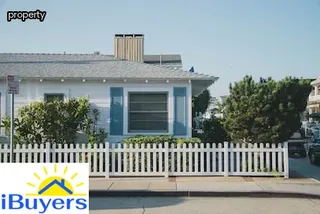
In Virginia, there is an important distinction between squatting and trespassing. Squatting is when someone stays on a property without permission from the owner and without paying rent.
This means that the person does not have a legal right to stay on the land, but they may still have certain rights due to their presence. Trespassing, on the other hand, is when someone enters onto a property without permission or legal authority.
In this case, the individual has no rights whatsoever and can be subject to criminal penalties. Understanding these two concepts is essential for landlords in Virginia who wish to protect their property from unauthorized occupants.
When it comes to uncovering squatter's rights in Virginia, knowing whether an individual is squatting or trespassing on a property can make all the difference.
In order to make a successful claim for adverse possession in Virginia, the squatter must demonstrate that they have been continuously and openly occupying the land for at least fifteen years, that their occupation was exclusive and hostile to the true owner, and that they paid taxes on the property.
The squatter must also establish through evidence such as tax records or witnesses that their occupation of the property is continuous and uninterrupted during this period of time.
Additionally, it is important to note that squatters in Virginia are not allowed to acquire title over public lands.
Therefore, landlords should be aware of any potential adverse possession claims over their private land, as these claims may be valid if the squatter meets all of the requirements.

Removing squatters from your property can be a difficult and complex process, so it is important for landlords to familiarize themselves with the laws governing squatters’ rights in Virginia. One of the most effective strategies to remove squatters is to serve them with an eviction notice.
This notice should provide the squatter with a certain amount of time—usually somewhere between three to five days depending on local regulations—to vacate the premises. If they refuse to leave after receiving the eviction notice, then you should consider taking legal action.
Before pursuing any legal avenues, however, it is important that you first consult a qualified attorney who specializes in landlord-tenant law. Additionally, you may need to provide proof that the squatter is living on your property without authorization; this may involve obtaining witness statements or accessing security camera footage.
Finally, if all else fails, hiring a professional removal service can be an effective way to ensure that unauthorized individuals are removed from your property in a safe and timely manner.
Prevention is key when it comes to protecting your property from squatting. As a landlord, there are several measures you can take to ensure individuals do not take up residence on your property without permission.
First and foremost, always secure your land by regularly inspecting the premises and making sure all doors, windows and other entry points are locked. Additionally, consider installing surveillance cameras or motion-sensor lights to further monitor any suspicious activity.
Furthermore, it is important to stay well informed of state laws regarding squatters' rights in Virginia so that you can properly handle any potential situation. Finally, if you suspect that someone is living on your land without permission, contact local authorities immediately in order to have them removed as quickly as possible.
Taking these preventative steps will help protect your property from illegal squatters and safeguard your rights as a landlord.
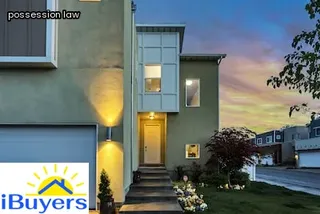
DoorLoop is a powerful asset to landlords in Virginia who are seeking to protect their property and understand their rights when dealing with squatter's rights.
The platform offers real-time alerts, access to legal resources, and an interactive map that helps landlords identify potential squatters near their properties.
DoorLoop also grants users the ability to customize tenant communication preferences for each rental unit in order to prevent any disagreements from arising.
For Virginia landlords, DoorLoop is an invaluable tool that not only provides peace of mind but also serves as a comprehensive guide for understanding squatter's rights and protecting against unauthorized occupants.
Signing up and accepting the terms & conditions through DoorLoop is an important step for landlords in Virginia looking to uncover squatter's rights. The process can be completed quickly and easily online, allowing tenants to quickly become aware of their rights as it relates to squatting.
In addition to being able to register with DoorLoop, landlords will also be able to receive updates about any changes that may occur in local laws or regulations related to squatting. This allows them to stay informed on their obligations and responsibilities as a landlord in this area.
Furthermore, DoorLoop also provides additional tools such as background checks for potential tenants and access to legal resources for those who require further guidance. With these services in place, landlords in Virginia can ensure they are taking the necessary steps to protect their property while also ensuring their tenants are being treated fairly and legally.
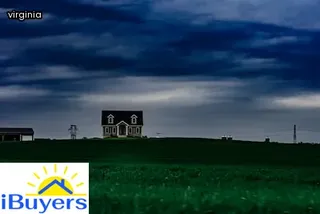
When dealing with the potential for squatters in Hampton Roads, Virginia, landlords must take proactive steps to protect themselves and their property. One of the most important things a landlord can do is to stay informed of local laws and regulations, as well as any changes that may affect squatters' rights in the area.
It's also important to understand how eviction proceedings work in the event that a squatter is found on your property, since this will be necessary if you wish to reclaim ownership of your land. Additionally, landlords should consider putting up signs around their property that clearly state that squatting is prohibited.
Fencing or barriers can also be used around the perimeter of the property; these will help deter would-be squatters from taking up residence on your land or otherwise trespassing. Finally, it's also wise to consult an attorney who specializes in Virginia real estate law if you have any questions or concerns about protecting yourself against squatter's rights in Hampton Roads.
The process of legally evicting squatters in Virginia is a complicated one, and requires property owners to understand their rights and responsibilities. To begin, it's important to identify a squatter correctly.
Squatters are individuals who occupy property without the permission of the owner or leaseholder. Once an individual has been identified as a squatter, the landlord must issue a written notice that they are occupying the property without authorization and must leave within 30 days or face eviction proceedings.
Property owners should also contact law enforcement if there are any signs of violence or threats of violence by the squatter. After the 30-day period has passed, landlords can pursue formal eviction proceedings in court.
These proceedings involve filing an unlawful detainer lawsuit with the local court and having a sheriff serve papers to the squatter. This can be done with assistance from an attorney or other legal professional if needed.
If successful, this will result in a writ of possession being issued which will allow for removal of the squatters from the property by law enforcement officers. It's important to note that each case is different and laws may vary from county to county, so it is best to consult a legal professional when attempting to evict squatters in Virginia.
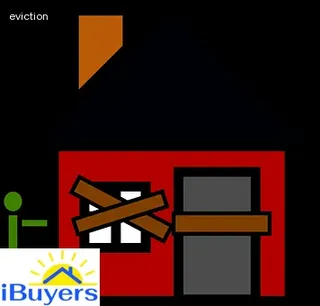
In Virginia, a squatter is someone who occupies another's property without any legal right to do so. Squatting can occur if the tenant has been living in the property for more than 15 years, or if they have made improvements to the property, or if they have been paying rent.
It is important for landlords to be aware of these criteria as squatters may have some legal rights to remain on the property. In order for a squatter to be protected by law, they must prove that they are occupying the space with “good faith and honest belief” that they own it.
This means that even though they do not have any legal title or lease agreement, they must still demonstrate that they are occupying the space as if it were their own. Additionally, squatters may gain rights based on how long they have occupied a space and what kind of improvements they have made; these rights can sometimes trump those of the landlord or owner.
Landlords should be aware of these nuances when dealing with squatters in Virginia in order to ensure that their rights and interests are protected.
Uncovering a tenant's squatters' rights in Virginia can be a difficult process. Adverse possession laws are based on the legal concept of "squatters' rights," which allow an individual to acquire title to land through long-term, open and notorious possession of it.
In Virginia, adverse possession requires that the squatter occupy the property for at least 20 years, with continuous use and payment of taxes for the entire period. To make matters more complicated, there are several exceptions that apply in certain cases.
For example, if a person has made repairs or improvements to the property, they may have only 15 years of occupancy required before title is granted. It is important for landlords to familiarize themselves with these laws in order to understand their rights as property owners and protect against claims from those who may try to take advantage.

When it comes to uncovering potential squatter's rights in Virginia, landlords should be aware of the concept of color of title claims. Color of title is a legal term used to describe situations where a person or entity has an apparent right to property or land but not a legal right.
This can occur when the owner has paid taxes on the land for an extended period and may even have documents that appear to be valid titles. In Virginia, color of title claims are addressed under Title 55.
2 Chapter 4 Section 55-225, which states that any person claiming a valid interest in land based on tax payments and written documents must file suit with the court within 10 years from the date the claim was made. Landlords should be familiar with this law so they can recognize any potential color of title claims and take appropriate action if needed.
As a landlord, it is essential to establish a digital portfolio with DoorLoop as part of your efforts to uncover squatter's rights in Virginia. DoorLoop is an easy-to-use platform that provides landlords with the necessary tools for creating digital portfolios.
This can include documents such as rental agreements, leases, and other relevant paperwork. Landlords are able to upload these documents directly into their portfolio and easily update or modify them as needed.
The platform also allows landlords to store tenant information securely and access it quickly when necessary. By utilizing the features of DoorLoop, landlords can ensure they have a comprehensive guide to uncovering squatter's rights in Virginia without having to worry about paperwork being misplaced or misfiled.
Additionally, this platform also allows landlords to track tenant payments and view all current tenants in one place so they can remain up-to-date on their responsibilities and obligations as a landlord. With its helpful features, DoorLoop provides an invaluable resource for discovering squatter's rights in Virginia for any landlord looking for an effective way to manage their digital portfolio.

Landlords in Virginia have access to a variety of free resources that can help them uncover squatter's rights in their state. From online databases to the Virginia Code, landlords can find information about tenant rights and obligations, security deposits, and more.
The Virginia Landlord-Tenant Handbook provides guidance on topics such as termination of tenancy, eviction, and rent collection. It is available for free download from the Virginia Department of Housing and Community Development website.
Additionally, the Virginia Bar Association offers a brochure entitled “Understanding Squatter’s Rights in Virginia” that outlines what rights tenants may have when living on someone else’s property without permission. This brochure is available for free download from the VBA website.
Finally, landlords can consult with local legal aid organizations which offer free advice regarding squatter's rights as well as other landlord-tenant related matters. All these resources provide valuable information to VA landlords looking to uncover squatter's rights in order to protect their property and themselves from potential legal issues down the road.
Accessing free downloads offered by DoorLoop can be an invaluable resource for landlords interested in uncovering squatter's rights in Virginia. Understanding what is available on the platform can provide a comprehensive guide to help landlords protect their property and their rights as a landlord.
Through DoorLoop, landlords can access legal advice, forms, notices and other documents designed to help them navigate the process of dealing with squatters and protecting their property. All of these resources are provided at no cost, making it easy for landlords to access the information they need without having to pay out of pocket.
In addition, the website provides comprehensive explanations about tenant rights and obligations under Virginia law which can help landlords understand their responsibilities when dealing with squatters. With all this information at hand, landlords are well-equipped to handle any issues that may arise when dealing with squatters in Virginia.
In Virginia, squatters rights are an often misunderstood area of the law. Squatting is when someone occupies a property without permission or legal title.
It's important for Landlords to understand their rights and obligations with regard to squatters in the state of Virginia. Under Virginia law, squatters can gain some legal rights to a property if they meet certain criteria.
To be considered a squatter in Virginia, they must have been occupying the land openly and notoriously, that is, in a manner that is visible or known to the public or landowners nearby; continuously for at least 15 years; and under the honest belief that they own the land due to long-term possession. If these conditions are met, then they may be able to obtain legal title through adverse possession.
Adverse possession allows those who have continuously occupied land for a given number of years (15 in this case) to become its rightful owners after paying back taxes and filing an affidavit with their local court. This means landlords should be aware of any individuals living on their property without permission for more than fifteen years as they may potentially have rights over it - even though no formal agreement has been made between landlord and tenant.
Additionally, landowners should be familiar with other protections afforded by Virginia law such as trespassing laws which protect them from unlawful use of their land by others. Understanding these laws can help landlords protect their assets from potential squatters and ensure their properties remain secure from unauthorized use or occupancy.
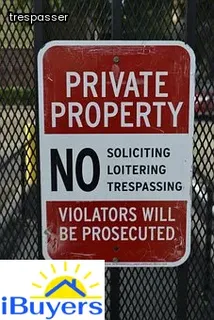
Evicting a squatter in Virginia is a complex process that can be daunting for many landlords. It is important to understand the state's laws and regulations pertaining to property owners and squatters in order to ensure the eviction process is done legally.
Before beginning the eviction process, it is important to identify if the person occupying the property meets the criteria of a squatter and has no legal rights to stay on the property. In order for someone to be considered a squatter, they must have been living on a property without permission from the owner for at least 45 days.
Once it has been confirmed that someone is indeed a squatter, landlords must provide 30-days notice of their intent to evict before any legal proceedings can begin. This notice should include information about when and how they will need to vacate the premises or face further legal action.
Upon receiving this notice, if the squatter fails to move out within 30-days, then landlords may file an unlawful detainer lawsuit with their local court system. The court will then decide whether or not an eviction will take place and provide instructions on how it should be done properly.
By understanding all of Virginia's laws surrounding squatters' rights, landlords can successfully and legally evict any unwanted occupants as quickly as possible.
In Virginia, the shortest time for squatters rights is 30 days. Squatters rights, or Adverse Possession, is a process in which someone who has been occupying land for a certain amount of time may be able to acquire legal title of the property.
In order for squatter's rights to be established in Virginia, the individual must have been living on and using the property openly, without permission from the owner, continuously for at least 30 days. This means that if an individual has been living on a property without permission from the owner for 30 days or more they may be able to claim ownership of it under Adverse Possession.
Landlords should be aware of this short period of time that squatters may be able to establish rights to their property and take action accordingly.
Adverse possession of property in Virginia is a legal concept that gives an individual the right to acquire title to real estate through continuous, exclusive, and visible occupation for a statutory period of time. Under Virginia's adverse possession statute, a person may gain ownership of real estate owned by another without compensation as long as certain elements are met.
These elements include possessing the land openly and adversely for fifteen years or more, paying taxes on the land for fifteen years or more, using the land continuously and exclusively during that same time period, and maintaining the land with reasonable care. In order for a squatter to qualify for adverse possession in Virginia, they must demonstrate that they made an entry onto the land with intent to possess it; their possession must be open and notorious; their possession must be hostile or under claim or color of title; they must have actual possession and control of the property; and they must generally use it continuously as true owners would do.
If all of these criteria are met, squatter's rights can be established in Virginia.